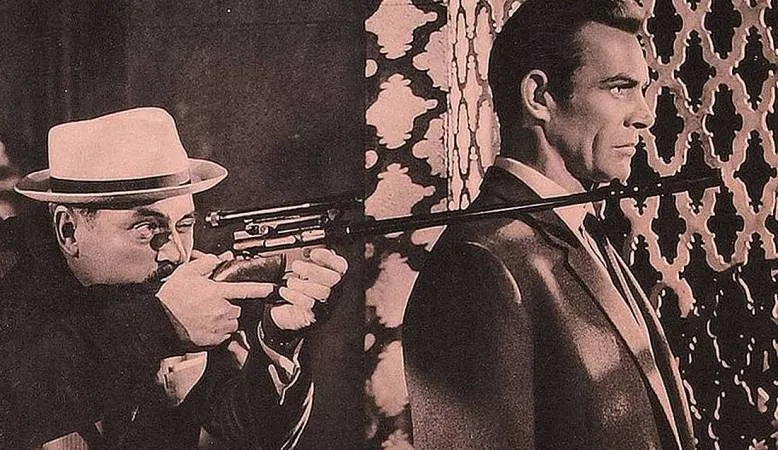
Russia was an issue in US presidential campaigns long before Donald Trump emerged on the political scene. In 1992, Bill Clinton argued that his rival George H. W. Bush’s masterful handling of the Soviet empire’s collapse was no qualification for the nation-building at home America’s next president would need to prioritise. In 2000, George W. Bush looked into Vladimir Putin’s eyes and “got a sense of his soul.” In 2008, Barack Obama promised a “reset” with Russia following its invasion of Georgia. In 2012, Mitt Romney identified Russia as America’s #1 geopolitical foe, earning scorn from President Obama on the grounds that “the Cold War’s been over for 20 years.”
Now along comes presidential candidate Donald Trump, inviting Russia’s intelligence service to hack into Hillary Clinton’s private email archive to find the missing trove of private communications deleted from her personal server when she was Secretary of State. American intelligence services are in agreement that state-sponsored Russian hackers provided to Wikileaks a trove of email communications between the Clinton campaign and the Democratic National Committee seeking to sideline former Democratic primary candidate Bernie Sanders from the race to help Clinton clinch the nomination.
This comes only a week after Trump suggested that, if he were president, America might not defend its NATO allies in the event of a Russian attack, calling into question the future of the world’s most successful military alliance and eroding its deterrence guarantees against Russian aggression.
The external interference of Russia in a US presidential campaign is remarkable, but not out of keeping with the country’s tradecraft under Putin, a former clandestine operative. In recent years, Russia’s intelligence services have quietly intervened in elections across Europe to support anti-EU, nationalist, and right-wing political parties and civic groups, with the goal of fracturing the EU and NATO. The weaker and more divided the West is, the more potent a declining Russia governed by an insecure strongman appears in contrast, and the more it can erode the European security order through weapons of the weak like subversion and disinformation.
But for Russia, as a matter of state policy, to leak the private communications of the potential next US president — and for these leaks to be timed to do maximum damage to her by being released during the Democratic Party convention — is something new. Also new, and even more alarming, is Trump’s invitation to Russia’s security services to unearth the missing emails from Clinton’s private home server that were not provided to the FBI during their review of her security protocols as Secretary of State.
Trump long ago threw out the rule-book on how to run as a candidate for president of the United States. Perhaps we should not be surprised by his appeal to Moscow for support against his Democratic opponent, just as we should not have been surprised that he would jettison a 70-year bipartisan consensus in American foreign policy over the sanctity of alliance commitments.
 Image courtesy: User mal3k of Flickr
Image courtesy: User mal3k of Flickr
But Trump’s argument that he is the candidate who can protect America in a time of danger at home and abroad is undercut by the fact that he seems more focused on improving ties with US competitors in Russia and China than he does on confronting the strategic challenge they pose to vital American interests.
Politics is supposed to stop at the water’s edge. Trump is invoking the assistance of Russian intelligence services — the most sophisticated clandestine adversaries of the United States operating today — to further his domestic political campaign. It is hard to square this approach with his promise to “put America first,” when it seems he is quite consciously putting his personal political ambition first in an effort to bleed his political opponent.
Trump’s position is also entirely out of step with that of the Republican Party he now leads. As Speaker of the House Paul Ryan put it, “Russia is a global menace led by a devious thug. Putin should stay out of this election.” Senate Majority Leader Mitch McConnell argued that “NATO is the most important military alliance in world history. I want to reassure our NATO allies that if any of them get attacked, we’ll be there to defend them.” Senate Armed Services Committee Chairman John McCain said he “strongly disagreed” with Trump’s comments and suggested that “maybe we also ought to show some appreciation for what our NATO allies did for us in Afghanistan.” Senator Lindsey Graham attacked Trump, saying: “Statements like these make the world more dangerous and the United States less safe.”
Even Trump’s vice presidential running mate, Mike Pence, went into damage-control mode: “I have every confidence that Donald Trump will see to it that the United States of America stands by our allies and lives up to our treaty obligations.”
Read: Donald’s potential VP: Trump 2.0 or old school Republican?
Despite all the talk of American decline and its reality-TV politics, the United States remains the international system’s hyper-power. China’s slowing growth means it may never catch up; the “rise of the rest” looks less convincing today as the economies of Russia, Brazil, and South Africa contract; and the future of Europe itself is in question as Brexit threatens to unravel the EU project. No country or grouping of nations will eclipse the United States any time soon. But the fracturing of the Western alliance that has been a central source of American security — and the unraveling of America itself as enemies are treated as friends and protectionism, nativism, and isolationism grain ground — could do the job for them.
Read: Republicans may save America from Trump, but can they save themselves? | The Republican revolt over Trump
The author is a Director at the German Marshall Fund of the United States.
The views expressed above belong to the author(s). ORF research and analyses now available on Telegram! Click here to access our curated content — blogs, longforms and interviews.




 Image courtesy: User mal3k of Flickr
Image courtesy: User mal3k of Flickr PREV
PREV

